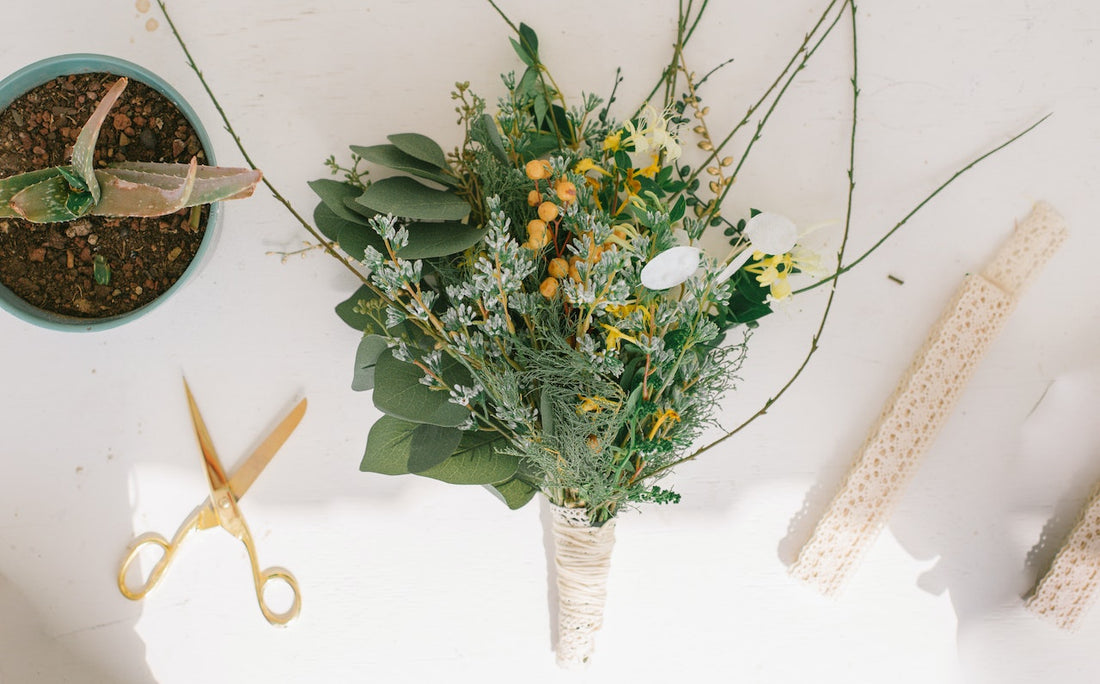The Ancient Egyptian civilisation was one of the first true civilisations, a place that brought together some of the greatest minds in the ancient world and influenced countless others.
It’s easy to look back at this ancient empire and dismiss its medicine as primitive, but while a lot of what they did was trial-and-error, Egyptian doctors and scholars were the elites of their time.
Whether by luck or design, many Ancient Egyptian herbal remedies do actually work, just not always for the reasons they were prescribed.
Plants, Herbs, and Teas Used by the Ancient Egyptians

Nature was an abundant source of medicine in ancient times; the only way that doctors could find cures and patients could find relief. It’s no surprise, then, that civilisations like the Egyptians had hundreds of herbs prescribed for dozens of ailments.
However, unlike the Greeks and the Romans, whose languages and cultures we know a lot about, a large part of Ancient Egyptian culture has yet to be deciphered.
For instance, we have access to papyri that detail a huge number of herbs to be added to alcohol and water and consumed for medical purposes (pain relief, viruses, wounds). But we haven’t been able to decipher the bulk of them and, therefore, don’t know which herbs they’re referring to. (1)
However, we do know about some herbs the Egyptians used—many of which are still in use today.
Coriander and Cumin Seeds
Coriander seeds and cumin seeds were made into strong teas for the treatment of flatulence and other digestive disorders. Thought to soothe the digestive tract, these seeds were also added to many Egyptians dishes, providing a hit of spice along with those digestive benefits.
Coriander seeds can help with digestive issues, including bloating and flatulence. The essential oils of coriander seeds have been studied extensively, with researchers noting a high level of antibacterial and anti-inflammatory responses. (2)
Today, we can study these seeds on a molecular level and understand what compounds they contain and why they provide the benefits they do. The Egyptians knew none of that, but they still prized these seeds and got very close to understanding how they interact with the human body.
Fennel
The fennel plant is delicious, fragrant, and healthy—a perfect combination. We have previously discussed how this plant was popular amongst Greek physicians and also noted that, in Greece, it goes by the name Marathon, with the town, and then the battle, named after it.
But the Egyptians were fascinated by this plant long before the Greeks were. They used it to treat a host of ailments, eating it whole or adding it to foods and drinks. Like many other strong-flavoured foods, fennel was popular both as a flavouring and a medicine.
We know from modern research that fennel is both a potent anti-inflammatory and an antioxidant and can help with digestive issues. It can soothe the digestive tract, easing inflammation and reducing issues such as excess gas, bloating, and more.
Garlic
Although not strictly a herb, garlic is definitely a natural remedy and one that was incredibly popular throughout Ancient Egypt. They ate vast quantities of this stuff and were also known to steep it in wine, which they would then drink. (3)
The Egyptians believed this pungent elixir would boost their energy levels and keep them alert. They also used garlic as a breathing aid, giving it to people who struggled with conditions like asthma. The Egyptians also held similar veneration for onions, which they often ate raw.
Today, garlic is known to have numerous digestive and heart-related benefits and is popular with cultures all over the world. Many older people in Greece still swear by the benefits of garlic when eaten raw, and although it’s not a very appetizing prospect, health practitioners would agree with them.
It’s likely that the Ancient Greeks got their obsession for garlic from the Egyptians, as they also used an abundance of this potent spice in their remedies. In fact, a lot of Greek medicine was influenced by the Egyptians, along with Mesopotamian civilisations like the Babylonians.
Other Remedies Used by the Egyptians

We tend to think of ancient civilisations like the Egyptians and Greeks existing independently of one another, because the average layperson can’t recall being taught about wars between the Egyptians, Greeks, Romans, and other major empires in history class.
But they did cross paths, they did fight, and they also traded. They swapped ideas, metals, weapons, wine, oil, and countless herbs. Until the great collapse of Bronze Age civilisation around 1200 BC, massive trade routes existed from North Africa to Asia that mirrored the world of today.
The Egyptians, for instance, imported supplies from modern-day countries like Greece, Cyprus, Lebanon, Israel, Syria, and the mysterious land of Punt. As a result, they weren’t simply relying on local fauna, and just like a modern scientist looking for the next big cure, they could look outside their borders for their treatments.
As a result, they used hundreds of herbs and spices, and many of these are still being used today, including safflower, aloe, caraway, thyme, and cinnamon. The Egyptians also understood the healing power of honey and even used yeast for some bacterial infections.
Of course, their interests weren’t limited to abundantly available herbs and other culinary treats. They also used cannabis (believed to have been imported from Punt, their mysterious neighbours to the south) and opium, prizing them for their pain killer properties. And this, more than anything, tells us that the Egyptians knew a lot about the medicines they consumed.
These substances may be considered taboo today, but you can’t deny the fact that they both feature prominently in modern medicine. In fact, opium is the foundation of countless painkillers and has been essential in the treatment of serious diseases and disorders for centuries.

